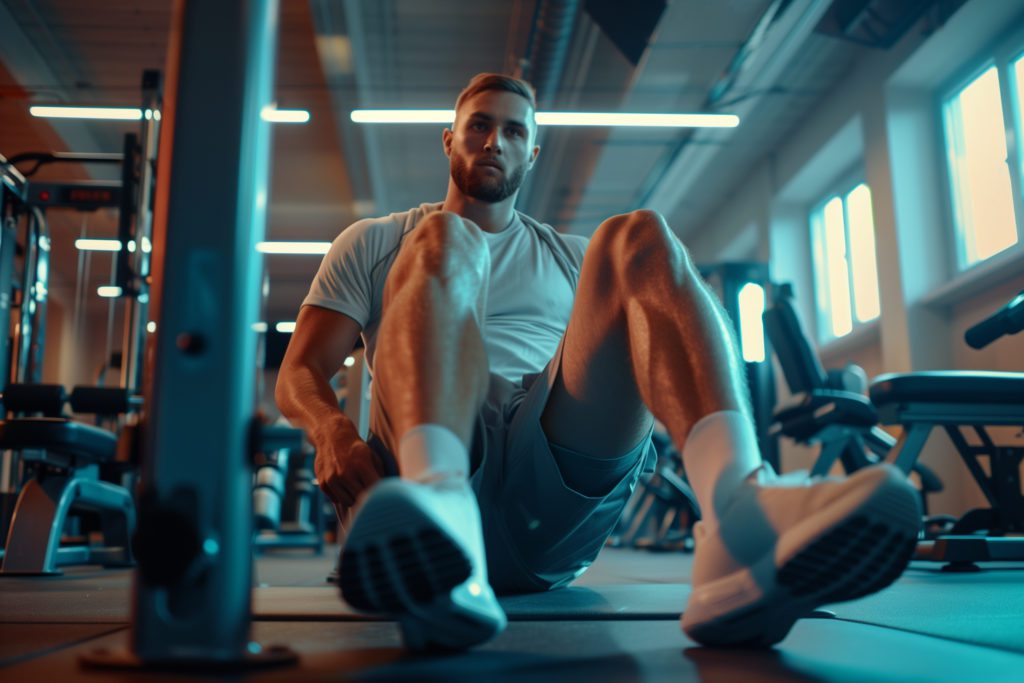
How Regular Exercise Transforms Your Sleep Quality
Exercise offers benefits for your mental and physical health. Explore how exercise can improve your sleep quality and discover which workout types are best.

When you struggle to get good quality sleep, you likely know every trick in the book. For instance, you know that it’s important to keep your bedroom dark, cool, and quiet to minimize opportunities to be awoken during the night. Yet another commonly known trick to sleeping better is avoiding screens in the hour before bed since the blue light they produce suppresses your production of melatonin.
While these nighttime habits can help you improve your sleep quality, have you considered what can be done during the day to make your nights easier?
Exercising is one of the greatest tools to implement in your journey to better sleep, as it not only helps you fall asleep, but it can also help you get better quality of sleep during the night, allowing you to wake up feeling refreshed and ready to tackle the day.
How Exercise Improves Your Sleep
The benefits of exercise for your physical health are well-known, with it shown to improve your cardiovascular health and reduce your risk of other chronic conditions, such as diabetes. Exercise even offers a mental health boost thanks to its production of mood-boosting neurotransmitters, with studies showing that exercise can improve symptoms of both depression and anxiety.
Beyond these benefits, though, exercise also offers a way to improve your sleep, both directly and indirectly.
Exercise Makes Falling Asleep Easier
One of the greatest challenges facing individuals worldwide is falling asleep, which is why insomnia is the most common sleeping disorder. However, the less time you spend asleep, the less time you have to go through the sleep cycles, which can equate to less time in deep, restorative sleep. With less deep sleep, your sleep quality declines immensely, leaving you tired in the morning.
Exercise can help in this regard, with research showing that regular physical exercise has a positive impact on sleep onset latency, or the amount of time that it takes you to fall asleep.
Exercise Can Reduce the Risk of Certain Sleep Disorders
Exercise offers a way to reduce health conditions, specifically obesity, that may increase the risk of sleep disorders, such as obstructive sleep apnea.
Obstructive sleep apnea (OSA) is a disorder in which someone experiences episodes of stopped breathing during the night due to a narrowed or blocked airway. When breathing halts, it can cause those with OSA to wake each time, which can happen dozens of times just within an hour.
We cycle through four stages of sleep during the night, with the third stage being that of deep sleep. However, with sleep apnea, each time someone wakes up, they restart at stage one of sleep, which is light sleep. As such, those with OSA often get less deep sleep during the night, which reduces their quality of sleep and can make them more tired in the morning.
One of the risk factors for OSA is obesity, as the extra weight held in the body, especially in the neck, can press in on the airways during the night, causing these obstructions. Knowing this, losing weight is a powerful way to reduce the risk of OSA and lessen its disruptions during the night. Exercise remains an effective way to decrease weight gain and, when combined with other habits such as a healthy diet, can aid in your weight loss efforts.
As such, in an indirect way, exercise may improve sleep quality by lessening the risk of disruptive sleep disorders such as OSA.
Exercise Reduces Stress
Exercise has long been touted as a form of stress relief, and this can produce positive changes in your sleep. Namely, stress, especially stressful thoughts, can keep you up at night tossing and turning.
However, the impact of stress on your sleep goes deeper than this, and it all has to do with cortisol, the stress hormone. Cortisol is a hormone that generally follows a 24-hour cycle alongside your circadian rhythm. It is typically at its lowest around midnight and then gradually starts increasing around 2:00-3:00 a.m., with its peak around 8:30 a.m.
Those who are stressed have higher cortisol levels throughout the day and night. However, since cortisol is generally at its highest in the morning, if cortisol levels are high at night, thanks to stress, the body may misread it as a signal to wake up. As such, those who are stressed may wake up more during the night, which eats into the deep, good-quality sleep they could otherwise get.
Exercise has been shown to reduce cortisol levels, not only offering a mental break from stress but also a physical one that can then equate to better quality sleep.
Which Type of Exercise Is Best for Improving Sleep Quality?
With all the types of exercises, you may be wondering which is best when your goal is to improve your sleep quality. While any kind of exercise is better than none, some types do stand taller than others in this regard.
A 2020 study found that HIIT may improve sleep quality in middle-aged adults with low physical activity levels. Other studies have shown that regular resistance training can help enhance the quality of sleep. Resistance training involves any exercises with resistance, which can take the form of resistance bands, free weights, weight machines, or even your body weight.
One meta-analysis suggests that the type of exercise may not be as influential as the time that you exercise, with the results showing that those who exercised in the evening experienced more slow-wave sleep, also known as deep sleep. However, if you exercise too close to bedtime, typically within an hour, your core body temperature may be high when you try to sleep, which can keep you awake. So, evening exercise can increase deep sleep—just keep from exercising too close to bedtime.
Ultimately, the key to better sleep is having consistency in sleep hygiene habits, including exercise. As such, the best exercises for sleep will entirely depend on what you find enjoyable—when you find a workout that you look forward to, you’ll have an easier time keeping up with it, and your improved sleep quality will be just one benefit of your regular exercising.

Written by
Jessica G
Medical writer freelancer who has written hundreds of articles on varying topics. Masters of Engineering degree in Biomedical Engineering.
Download Pillow
Get help
Press & News
Legal
Connect
X (Twitter)
Company
Copyright © Neybox Digital Ltd.



